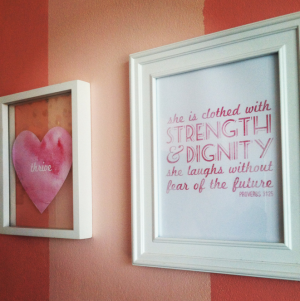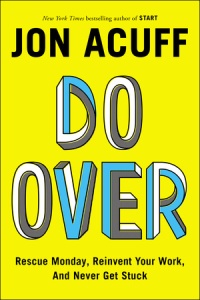15 people. Teen-aged to middle aged. Families. Couples. Solo travelers. This is the demographic that makes up our team heading to Kenya this summer.
It’s been a long time since I was a member of a team taking a trip, longer still since I was part of a group traveling internationally. Most of my recent travel has been as a couple or a family, with Phil doing much of the planning (or us collaborating) and the decisions and finances ours alone.
On those distant-memory trips, I was a college student, serving at a children’s home in Oklahoma or in a community hit by hurricane in North Carolina. I was traveling with other college students in Europe, some trips pre-planned, others a little more spontaneous.
Once, I ventured off on my own to walk through the museum at Wimbledon, where the tennis tournament is played. I was slightly obsessed with Pete Sampras at the time and needed to see the actual place, as long as I was close. I remember boarding the train and leaving my friends on the platform in London. I shed a couple of tears because I wasn’t the sort of person who was confident about traveling on her own. But I recovered and set off on a memorable adventure. Relief filled me when I was reunited with my friends. (There was another time when I rode the train by myself from Grantham, England to Edinbourgh, Scotland to meet my friends who had set out a day ahead of me. Together, we then traveled to the Isle of Skye. But I’ll stop now with the memories before I become homesick for a home that’s not a home.)
Solo travel is not my preferred way because I don’t always trust myself with the details. Also, there’s no one else to lean on if things should go wrong. But teamwork takes some getting used to if it’s been a while, and for a recovering control freak (that’s me!), teamwork takes patience and trust, things of which I am often in short supply.
Let me tell you about my recent teamwork experiences, though. They are making me believe, again, that solo travel is not my preferred way through life, either. That life is better together, even when it’s hard.
Our Kenya team recently organized and planned and pulled off a silent auction and luncheon as our second fund-raising event. I confess that when it comes to fund-raising, my efforts are dismal. I don’t like to sell things and since we live in an area that’s not our home, we can’t even beg our families to support us, at least not when we’re selling things. In our efforts to raise money through local events, I have felt like our contribution has been minimal. I beat myself up about whether we’re doing enough to help. Many of our friends are part of the church and would already support the team. And our families are supporting us in other ways (namely, watching our kids while we’re gone, for which we’re hugely thankful).
It is easy for me to feel like I’m not giving enough because my standards for myself are so high. Combined with insecurity and a desire to please people, I constantly feel like I’m not pulling my weight. And not just with this team, but with any team I’m on. My value is linked to my perspective of how I’m contributing, and in my eyes I’m always coming up short.
Maybe everyone else feels that way, too, I don’t know. What I do know is that my view changes when I consider all the different and necessary ways each member of the team contributes.
Prior to the auction, several of us were collecting donations. Some did shopping for food and other supplies. Others worked on publicity for the event. There were people prepping food in the days leading up to the event. And on the day of, there were people setting up the auction items, baking the potatoes, preparing the toppings. There were people serving food and organizing the auction and cleaning up trays and washing dishes. At times that day I still felt like I wasn’t doing enough, but at the end of the day, when nearly all the auction items had been claimed, I was satisfied.
Because it was truly a team effort. Sure, I didn’t have anyone there who was bidding on items, but I had people who had contributed items. And the items I had collected for the event were bid on by someone I didn’t know. And maybe I couldn’t help set up but I washed dishes (along with a dynamite team of teenagers who dried dishes and who make me think the teenage years, when they come, are going to be just fine).
The mark of a good team is having a variety of skills and abilities present and everyone using those skills and abilities to help the team’s cause. My job as a member of any team is not to do all the work but to do the work I’m able to do and to let other people do the work they’re able to do. I hope that doesn’t sound like a cop-out, but in recognizing my tendency to control, I’ve learned that it’s okay to not do it all, even if I think I could do it better. (I can’t.) 
That same weekend my friend Alison and I taught a writing workshop on blogging at a one-day conference our writers’ group puts on. A few days before, Alison was sick with some kind of super-illness and there was a chance she wasn’t going to be feeling well enough to lead it with me. We’d designed the workshop to suit our styles and expertise: I talked about some of the philosophies and principles of blogging while Alison focused more on the technical side of things. It’s a great workshop (if I’m allowed to say so) that balances a lot of information, and the thought of teaching the whole thing myself terrified me because I don’t understand the technical side of blogging the way Alison does.
Fortunately, she was well enough that day to teach, and the workshop was better for it. We each did our part and did it well. We make a great team.
And it’s the same in my marriage, when I let it be. Phil and I are a team. We’re working together toward the same goal. We each have qualities that contribute positively toward our marriage and what needs to be accomplished. One example: yesterday while I was out of the house, he organized the dirty dishes for me, sorting them so like items were with like items (and yes, we have enough dirty dishes in our house that they need to be sorted so they don’t overtake our entire kitchen). I don’t understand why it’s easier for me to wash dishes when they’re sorted, but it is, and he knew that and it helped me get a better handle on the cleaning.
On the days when I think I’d be better off going it alone, whatever the circumstance, I think about the value of team work. About inviting other people into my life. How much better it is to work alongside people and share the burdens.
We’re better together, you and I. I hope you know that, too.
What is your reaction to team work?
Are you open to sharing the load or are you more of a control freak?
How do you invite other people into your daily life?
















